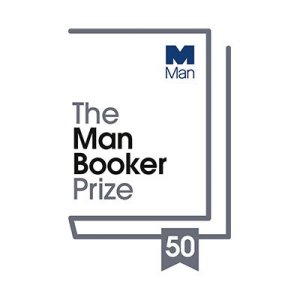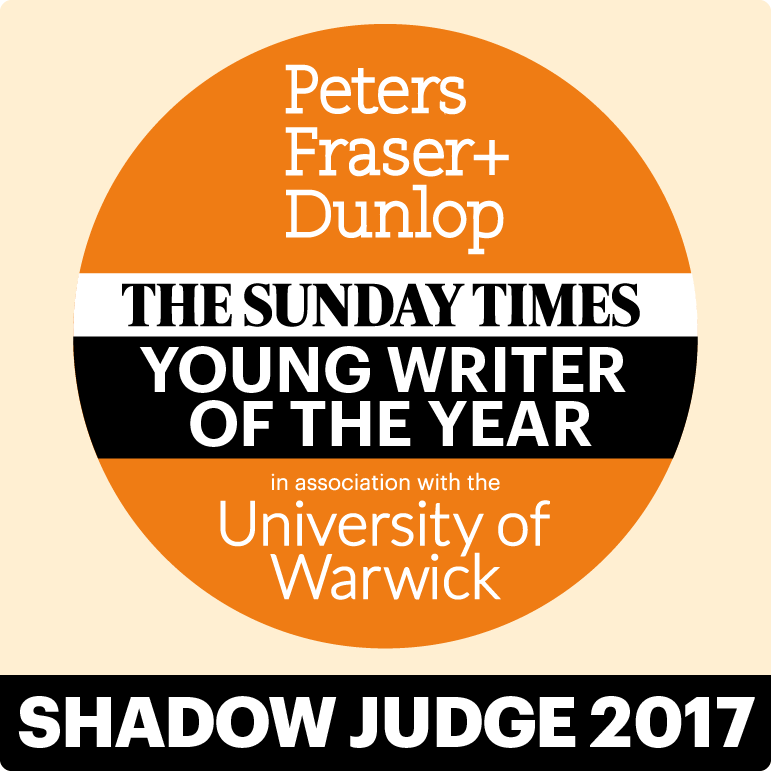 The Man Booker Prize is celebrating its 50th anniversary this year with a “best of the best” Golden Man Booker Prize due to be awarded next month. However, while the winning novels have often been met by a mixed response, many of the shortlisted and longlisted titles have been well received and in some cases go on to be better known than those taking the prize that year. So if the past winners don’t inspire you, then here is a selection of “the best of the rest” to consider.
The Man Booker Prize is celebrating its 50th anniversary this year with a “best of the best” Golden Man Booker Prize due to be awarded next month. However, while the winning novels have often been met by a mixed response, many of the shortlisted and longlisted titles have been well received and in some cases go on to be better known than those taking the prize that year. So if the past winners don’t inspire you, then here is a selection of “the best of the rest” to consider.
His Bloody Project by Graeme Macrae Burnet – shortlisted in 2016, this is a brilliantly original historical crime novel which blurs the line between fiction and non-fiction with outstanding results. Published by Saraband, a small Scottish independent press, I doubt I would have discovered this if it hadn’t been for the publicity generated by the Man Booker Prize.
A Tale for the Time Being by Ruth Ozeki – shortlisted in 2013, this novel really stood out for its originality. I noted in my review at the time that “stories featuring 104-year-old anarchist feminist Zen Buddhist nuns… are not what many people would consider to be “typical” Man Booker Prize material (if there is such a thing)” and I think it’s safe to say that this is still the case.
On Beauty by Zadie Smith – shortlisted in 2005, this book unfortunately lost out to ‘The Sea’ by John Banville – one of the dreariest books to win the Prize along with ‘The Gathering’ by Anne Enright in 2007. An honourable mention must also go to ‘Never Let Me Go’ by Kazuo Ishiguro, a brilliant dystopian novel which was shortlisted in the same year.
The Stone Diaries by Carol Shields – shortlisted in 1993, I really enjoyed this novel about the life of a Canadian woman across the 20th century which is both ordinary and extraordinary.




Notes on a Scandal by Zoe Heller (2003) and Room by Emma Donoghue (2010) have been among the more commercially successful shortlisted titles. I really enjoyed both, and whatever your views about the Prize’s complicated relationship with “genre” fiction, Donoghue’s novel is surely more memorable than The Finkler Question by Howard Jacobson which won that year.
A Little Life by Hanya Yanagihara certainly made an impact when it was shortlisted in 2015 – a long and complex novel which was beaten by another long and complex novel ‘A Brief History of Seven Killings’ by Marlon James. I failed to finish the latter, but Yanagihara’s second book is extraordinary, although probably too divisive to win in the end.
Ian McEwan is much more likely to be remembered for his far superior novel ‘Atonement’ which was shortlisted in 2001 after taking the prize in 1998 for ‘Amsterdam’. Elsewhere, Margaret Atwood won in 2000 for ‘The Blind Assassin’ which was fourth time lucky after equally worthy shortlisted titles Alias Grace (1996), ‘Cat’s Eye’ (1989) and her most famous novel ‘The Handmaid’s Tale’ (1986).




Other authors have been shortlisted more than once but have yet to win. Sarah Waters has been shortlisted three times for ‘The Little Stranger’ (2009), ‘The Night Watch’ (2006) and ‘Fingersmith’ (2002) while Ali Smith has been shortlisted four times for ‘Hotel World’ (2001), ‘The Accidental’ (2005), How to be both (2014) and Autumn (2017).
The Man Booker longlist was introduced from 2001 onwards with The Amber Spyglass by Philip Pullman making the cut that year. ‘The Curious Incident of the Dog in the Night-Time’ by Mark Haddon was another novel popular with younger readers and was longlisted in 2003.
This is only a snapshot of the past 50 years of the Prize’s history, though. My choices are weighted heavily towards more recent years and there are many other past winners and shortlisted books I haven’t read yet by authors including Monica Ali, Sarah Hall and Graham Swift to name a few. Which longlisted or shortlisted books are among your favourites? Which ones do you think were robbed of the Man Booker Prize by a less worthy winner?





I’m biased having been taught by him, but I would have loved to have seen David Lodge win for Nice Work in 1988.
LikeLike
An excellent reason to be biased!
LikeLike
I’ve just written a piece about Beryl Bainbridge, who was shortlisted five times, but never managed a win until they did a Best of Beryl Booker. I also adored The Van by Roddy Doyle. I wouldn’t vote for A Little Life, but haven’t read any of the others that year!
LikeLike
I haven’t read any of her novels which is something I must rectify. I think Julian Barnes was right when he described the MBP as “posh bingo”!
LikeLiked by 1 person
I spent three years living in London and that’s when I first learned about the prize. Whatever its faults, I love the publicity it brings to books in general and often less-heralded ones at that. I was disappointed when it was open to Americans. I tried to read as many as I can (short, long & winners), though I’ve never been able to get through Midnight’s Children.
LikeLike
I think a lot of people were relieved that Midnight’s Children wasn’t shortlisted for the Golden Man Booker!
LikeLike
Great picks – just writing a ‘Sarah Waters was robbed’ piece at the moment, but to me, the biggest injustice will always be Never Let Me Go losing out to The Sea – totally agree with what you say about it! I loved a lot of your other highlights as well, especially A Tale for the Time Being and A Little Life.
LikeLike
Yes, hopefully her time will come! At least Kazuo Ishiguro has the Nobel Prize, a knighthood and another Man Booker Prize for The Remains of the Day as consolation!
LikeLike
“Do Not Say We Have Nothing” by Madeleine Thien shortlisted in 2016, I believe, is a truly extraordinary novel in my opinion. I really liked one if her previous books titled “Certainties”, too.
LikeLike
I remember it being a strong favourite at the time – but the favourites don’t often win!
LikeLike
I enjoyed The Sellout, but I think Do Not Say We Have Nothing was extraordinary. I might not have read it if it wasn’t doing the rounds for literary prizes, which makes me think just to be considered is enough to make people aware.
LikeLike
Absolutely – it can change the fortunes of under recognised authors, just as it did for Hilary Mantel.
LikeLiked by 1 person
I’ve read many of these and I’d agree all memorable. What a great choice!
LikeLike
Thanks!
LikeLike
Yes, so many terrific, memorable books that have missed out – great list!
LikeLike
Thanks!
LikeLike
I love lots of the non-winners you highlight here, especially Ozeki and Smith. I often prefer various short- or longlisted titles to the one that eventually wins, for this and many other prizes.
LikeLike
Yes, literary prize longlists play a vital role in drawing attention towards books that may not have received any otherwise. I still live in hope that the MBP judges will agree with my top choice at least once a decade though…
LikeLike
This is a great post! Such a good combo of books I love and books that I’ve been planning on reading. A Little Life not winning will always be a tragedy imo.
LikeLike
Thanks!
LikeLiked by 1 person
I loved A Tale for the Time Being, but I think it would be a tie in 2013 with “Harvest”. Both were better than the winner that year.
LikeLike
Yes, The Luminaries is ambitious but overwhelmed by its structure.
LikeLike
Great post and discussion. I have never read A Little Life but will soon rectify this. The three authors I feel have been overlooked are Sebastian Barry, Colm Toibin and William Boyd.
LikeLike
Thanks! One winner every year is never going to cover all the great books out there…
LikeLike